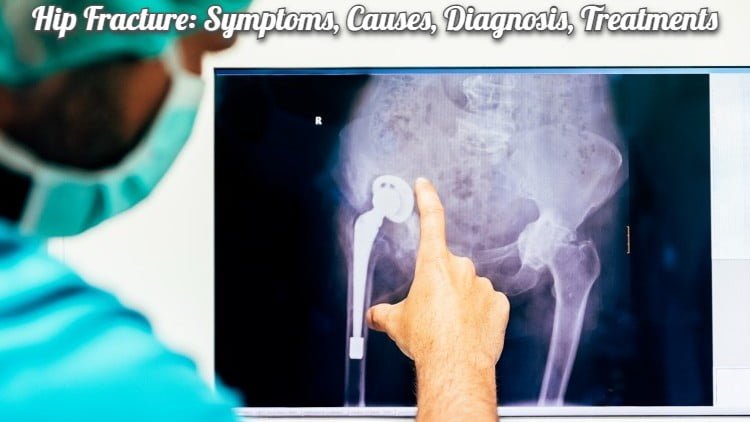Fractures are the second most common musculoskeletal problem and hip fractures are the most common type. Hip fractures should be considered a medical emergency.
A hip fracture is a type of broken bone. A hip fracture may happen for several reasons, including osteoporosis, trauma such as a fall, or developmental disorders. A broken hip is the most common long-bone fracture in adults over 60 years old. Both women and men can get hip fractures. The chances of getting a hip fracture increase with age.
Causes of Hip Fracture
In most cases, the cause of a hip fracture is a fall from a standing height on to a hard surface, or from falling forward while walking. Fractures can also occur as a result of high-impact car accidents or after a direct blow to your hip.
As mentioned, age and osteoporosis are two big risk factors for hip fracture. Other risk factors include sedentary lifestyle, gender, excessive alcohol consumption, body weight, medicines causing bone loss, and more.
Symptoms of Hip Fracture
A hip fracture may cause pain in your groin, upper thigh and lower back. You may feel numbness and tingle in your feet or hands. There may be swelling around your hips, too. You might not want to walk on a fractured hip because of pain and/or trouble balancing. This could leave you limping or unable to walk at all.
If you’re noticing the symptoms of a hip fracture, it’s essential to seek immediate medical help.
Diagnosis of Hip Fracture
X-ray and MRI scans are used to confirm that the break is not displaced and that there are no additional injuries. The treatment depends on how severe the injury is. Doctors will use a CT scan or an MRI with contrast if they think that there is bleeding into the bony tissue surrounding the hip joint (called hemarthrosis).
Treatments of Hip Fracture
When you have a hip fracture, you are likely to need surgery. In fact, most people with hip fractures will need surgery. Without surgery, your recovery may take longer and you might not get back as much range of motion in your hip. A few people can recover from a hip fracture without surgery if they are young and healthy.
In general, treatment for hip fracture generally involves reducing pain and swelling of the injured area through medication or surgery.
Again, in many cases, surgery will be performed to realign the bones back into their proper position. After surgery, it is important to take steps to prevent another fall from occurring by exercising regularly and getting regular checkups from an experienced fracture treatment doctor in Kolkata.
Final words
People with hip fractures often suffer from impaired mobility, increased need for assistance with activities of daily living, and depression. The key to avoiding a hip fracture is staying as bone-healthy as possible. So, keep your bones strong and active on a regular basis. If you find yourself with a broken hip, it is essential to seek proper care from any of the best orthopedic doctors in Kolkata who specialize in fractures.

